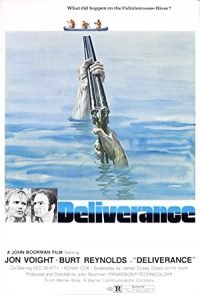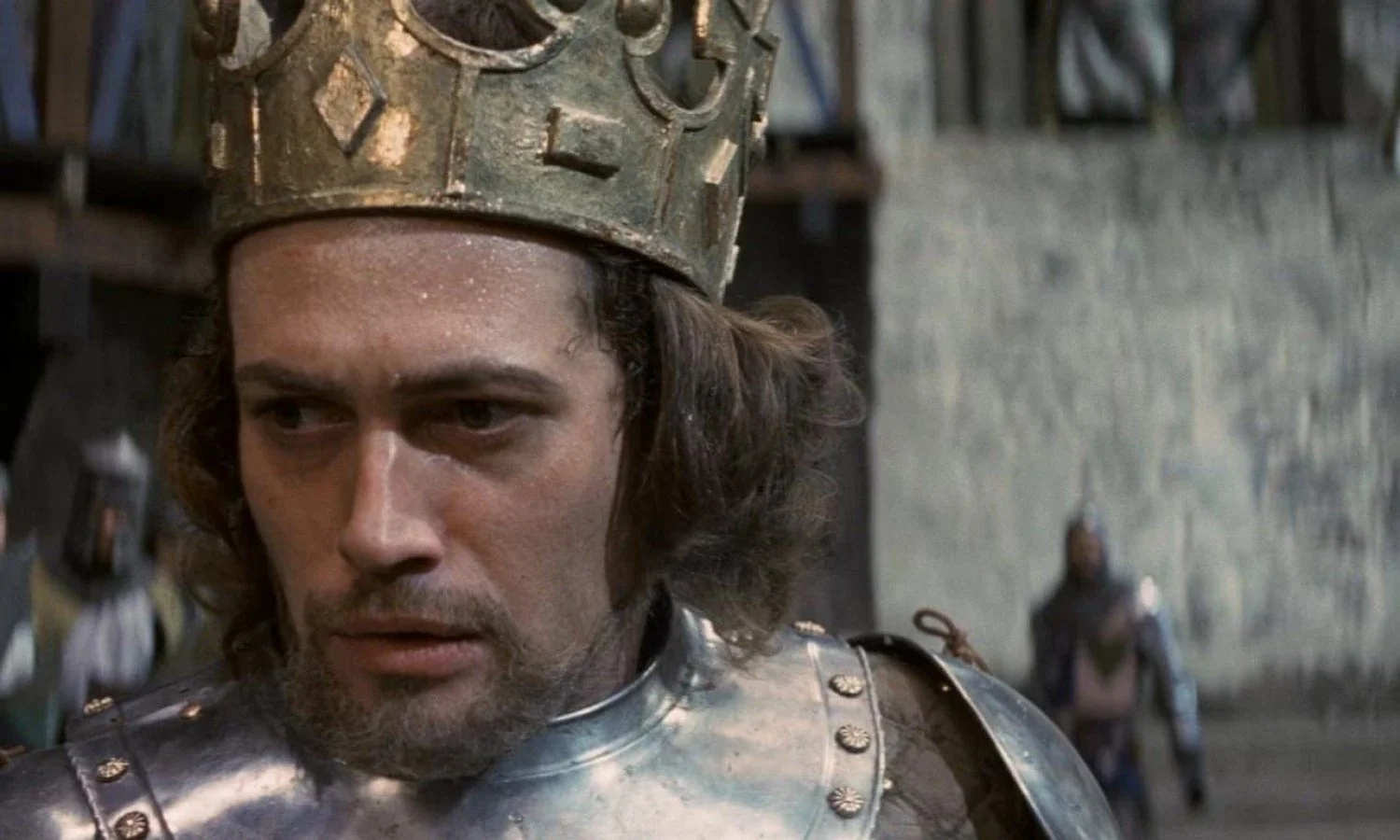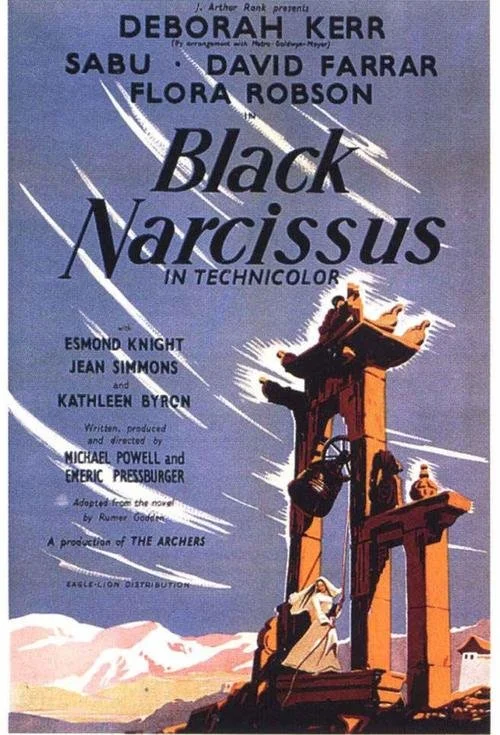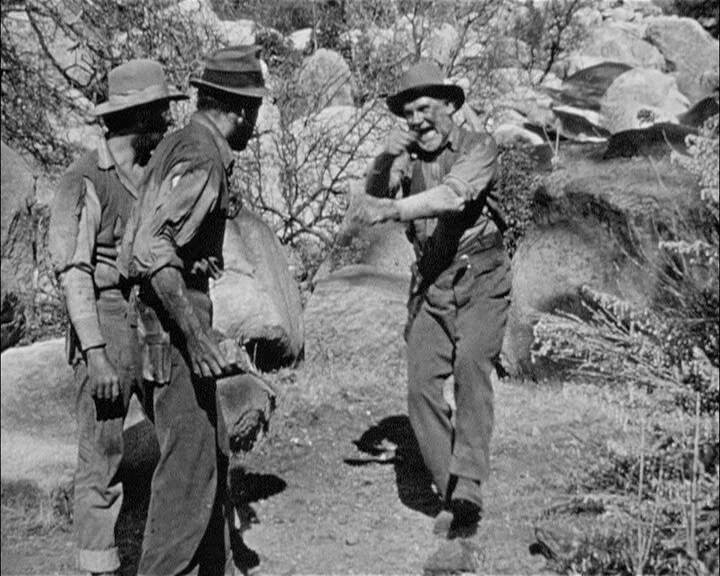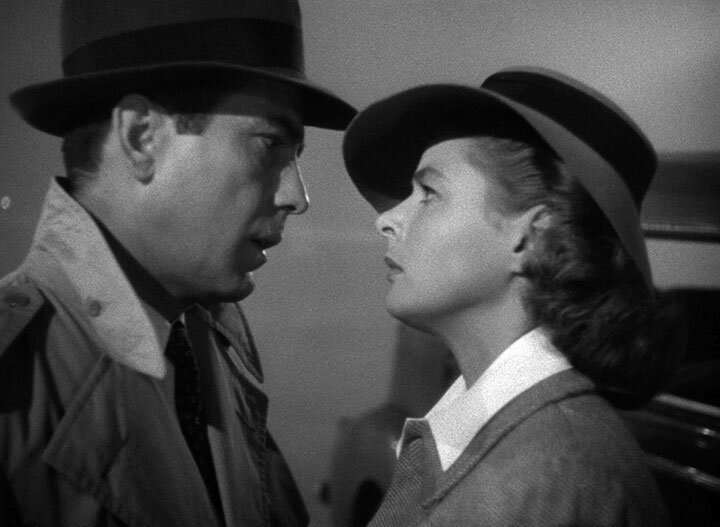"Now Listen to Me..."
Just some thoughts on current happenings:
Classic film screenings from around the world is returning this month in a limited capacity. Due to the Corona virus pandemic, please contact the theatre of choice regarding any restrictions including vaccination requirements, masks, social distancing, limited seating or last minute cancellations.
In Melbourne, Australia The Astor Theatre is presenting The Godfather: Part II (1974, a 4k digital presentation) Friday, March 4 and Saturday, March 5, and Deliverance (1972, a 35mm print, as part of this film’s 50th Anniversary) on Monday, March 28.
Click on the film’s image for more information. To see the rest of March’s schedule, click on The Astor Theatre banner above.
In Valencia, Spain, Culturarts Generalitat IVAC – La Filmoteca at the Edificio Rialto will be presenting They Shoot Horses, Don’t They? (1969) Friday, March 4 and Sunday, March 6, El pisito aka The Little Apartment (1958, a 35mm print) Tuesday, March 8 and Saturday, March 12, Macbeth (1971) Friday, March 25 and Saturday, March 26, and The Lost Honour of Katharina Blum aka Die verlorene Ehre der Katharina Blum (1975) on Saturday, March 26 and Sunday, March 27.
Click on the respective film’s image for more information on each screening. To discover the entire month’s programming, click on the banner image above.
In New York City, New York, Film Forum is continuing with their retrospective TOSHIRŌ MIFUNE: A four-week festival of 33 films starring the legendary actor Toshirō Mifune to Thursday, March 10. Just a few of the highlights this month include Rashomon (1950), The Bad Sleep Well (1960, a 35mm print), High and Low (1963, a 35mm print), and Samurai Assassin (1965, a 35mm print).
For information on these or the other films in this series, click on the actor’s image above. For information on all of the films playing this month, click on the Film Forum banner above.
In London, United Kingdom The Prince Charles Cinema will present Hercules (1997, a 35mm print, as part of this film’s 25th Anniversary) Saturday, March 5, The Godfather: Part II (1974, a 4k digital presentation) Saturday, March 5 through to Thursday, March 31, Ikiru (1952, a 35mm print) Sunday March 6, Heaven’s Gate (1980, a 35mm print with intermission) Monday, March 7, The Godfather (1972, a 4k digital presentation, as part of this film’s 50th Anniversary) Wednesday, March 9 through to Monday, March 28, On Her Majesty’s Secret Service (1969, a 4k digital presentation) Saturday, March 12 and Thursday, March 17, The Godfather Coda: The Death of Michael Corleone (1990, a 4k digital presentation, as part of this film’s 30th Anniversary, director/screenwriter Francis Ford Coppola’s definitive new edit and restoration of the final film) Saturday, March 12, Casablanca (1942, a 35mm print) Monday, March 28, and Pather Panchali (1955) on Wednesday, March 30.
Click on the film’s respective image for more information. To see March’s complete programming, click on The Prince Charles Cinema banner above.
In Bergen, Norway The Cinemateket i Bergen will present in a tribute to the late Peter Bogdanovich: The Last Picture Show (1971) Sunday, March 6 and Tuesday, March 8, and Paper Moon (1973) on Tuesday, March 22 and Tuesday, March 29.
For more information on this series, click on the filmmaker’s image above. For more information on each film’s showing, click on the movie’s image above. For more information on the other films showing at The Cinemateket, click on the banner image above.
In theatres across the U.S. Flashback Cinema is presenting Casablanca (1942, as part of this film’s 80th Anniversary) Sunday, March 6 and Wednesday, March 9, and Blade Runner: The Final Cut (1982/2007, a 4k digital presentation) on Sunday, March 27 and Wednesday, March 30.
Click on the respective poster image for more information. To see the entire month’s programming, click on The Flashback Cinema banner above.
In Auckland, New Zealand Academy Cinemas is presenting The Godfather: Part II (1974) Sunday, March 6, Come and See (1985) Saturday, March 12, a double bill of Duck Soup (1933) and Horse Feathers (1932) Sunday, March 13, and Black Narcissus (1947) on Sunday, March 27.
To obtain more information specifically on each of these programmes, click on the corresponding image. To see the entire month of March’s programming, click on the Academy banner above.
In Los Angeles, California The Beverly Cinema will present Shadow of a Doubt (1943, a 35mm print) Friday, March 11 (at 2 pm only), All About Eve (1950, a 35mm print) Saturday, March 12 and Sunday, March 13, a double bill of A Place in the Sun (1951, a 35mm print) and The Heiress (1949, a 35mm print) Thursday, March 17, and Strangers on a Train (1951, a 35mm print) on Saturday, March 19 and Sunday, March 20 (both showings at 2 pm only).
Click on the film’s respective image for more information. To see the rest of March’s schedule, click on The Beverly Cinema banner above.
In theatres across the U.S., TCM and Fathom Events are presenting The Quiet Man (1952, as part of this film’s 70th Anniversary) on Sunday, March 13 and Thursday, March 17.
Click on the film’s poster image for more information. To see this month’s entire schedule, click on The Fathom Events banner above.
In Los Angeles, California Secret Movie Club is presenting at The Million Dollar Theatre The Departed (2006, a 35mm print) on Thursday, March 17 as part of their St. Patrick’s Day Special Series.
For more information on this special screening, click on the above movie image. To discover other screenings organised by this group, click on the above theatre image.
There are 14 recommended films to watch on Turner Classic Movies in the U.S. this month:
A film well worth seeing is Network (1976), previously reviewed here. This “mad as hell” exposé of just how far some TV executives will go to exploit for profit, a former news anchor’s severe “on the air” mental breakdown, will itself air on TCM Friday, March 4 at 5 pm PST.
In case anyone missed last month’s showing, TCM will present again David Lean’s Doctor Zhivago, the latest in a series of Top Ten “All that Glitters…”: The Overrated, Saturday, March 5 at 1:15 pm PST.
A sterling example of how to present complex and enthralling characters, all of whom develop naturally while still holding our intense fascination, is Citizen Kane,
a previous TCM recommendation here. This American film masterpiece, the only U.S. film represented on our Top Ten: World Cinema Treasures, will begin Sunday, March 6 at 9 am PST.
Recently, in our Facebook chat room (all readers are welcome to join here), Citizen Kane came under significant fire for being boring and overrated. It seemed the best defence enthusiasts could muster was based primarily on the film’s technical achievements which prompted me to make the following response:
"Citizen Kane is, for myself, aside from all of the technical razzle-dazzle, an insightful, exploratory look into the human psyche. The relationships are chronicled with immense creativity and dynamism, having personalities rich in intellectual and emotional development, and yet remain consistent with each individual's temperament. It's not simply Welles' flashy style to admire here... it is how ingeniously he fuses those techniques into his narrative's progression that serves to enhance such a passionate overview of his characters while providing a thorough understanding of their experiences from each one's unique perspective, particularly in how some view their past.
I think those who look to a film like Citizen Kane for superficial entertainment qualities are apt to miss out on the profound relationship developments inherent in the narrative. These are rich, multilevel characters with complex emotions responding to their ever changing circumstances. To appreciate the kind of sophisticated delineation of character requires a substantial investment on the viewer's part, some may not be accustomed to giving. This is perhaps due to the overwhelming number of lesser cinematic fare providing simple and identifiable characters easy to assimilate as well as instantly gratifying resolutions to their dramatic conflicts. Others may be dismissive toward films like this one because they don't like seeing what are perceived as negative traits recognisable in themselves and/or other important individuals in their lives, plus the fact that, just like in real life, Citizen Kane’s populace tend to suffer through them rather than being provisioned with artificial heroic triumphs. Many films offer an escape from reality. Citizen Kane confronts us with it. Both types have value but when such an enlightening story is told with so much drive, innovation and passion, it transcends both categories.”
For those who enjoy the best in creative romantic comedy, be sure to tune in for Pillow Talk (reviewed here) Sunday, March 6 at 3 pm PST.
Next, is a cinematic portrait of a powerful historical female leader, Cleopatra (1963), previously reviewed here. Her reign will begin Thursday, March 10 at 10:30 pm PST.
MGM contract player Robert Taylor appeared in a startling number of excellent films. Johnny Eager, a previous recommendation here, is one of them. If you haven’t seen this exciting film noir with its irresistible characters (like the one pictured below played by Lana Turner) and situations, don’t miss the opportunity Saturday, March 12 at 5 am PST.
Bonnie and Clyde is a seminal gangster saga heavily influenced by French iconoclast Jean-Luc Godard. A prior review here includes a special contribution from Bob DiMucci who informatively reports on some of the film's critical responses at the time of its release. Following that, are my personal recollections at the age of 12 upon seeing this radically-new expeditious approach to American cinematic storytelling. The Barrow Gang will strike Sunday, March 13 at 3 pm (U.S. residents: remember to set clocks ahead 1 hour early Sunday morning) PDT.
John Huston's The Treasure of the Sierra Madre is indeed an unforgettable American treasure and a prior TCM recommendation here. Its cinematic storytelling riches can be uncovered on TCM Tuesday, March 15 at 10 pm PDT.
In case anyone reading this hasn’t seen the first in a succession of sequels, remakes, reboots, even a TV series, TCM can remedy that by revisiting 1968’s Planet of the Apes, reviewed here and arriving Thursday, March 24 at 11:15 pm PDT.
Early Saturday morning, TCM will show The Best Years of Our Lives, an incisive look into how each of three returning servicemen adapt to civilian life at home, after World War II. Previously, I highly praised The Best Years of Our Lives for its exceptional musical score composed by Hugo Friedhofer in the first part of a series entitled Top Ten: Motion Picture Music Treasures. This emotionally powerful tour de force will commence on TCM Saturday, March 26 at 4:45 am PDT.
Immediately following, 1944's Academy Award Best Picture Winner Casablanca will air which I criticised in my review here, for its emotionally underwhelming Parisian flashback, partly due to the fact that we did not see the romance develop before these rather lukewarm scenes took place. There is, however, no denying the fact that this film casts a magical spell and is certainly capable of sweeping one up in its appealing blend of romance, sacrifice and political intrigue. This 1942 classic, one of Hollywood's proudest, arrives Saturday, March 26 at 8 am PDT.
One of the most intelligent and illuminating documentaries ever produced is Robert Epstein's 1984 feature The Times of Harvey Milk previously reviewed here and making another rare showing on TCM Sunday, March 27 at (early morning) 1:15 am PDT.
“What a story! Everything but the bloodhounds snappin' at her rear end.”
All About Eve is really all about the spoken word and is a prior TCM recommendation here. She will make her appearance Sunday, March 27 at 8:30 am PDT.
Several notices ago, I recommended, and linked to a past review of, Casablanca, which I criticised for its emotionally underwhelming Parisian flashback. Prior to this film, however, Casablanca's producer Hal Wallis and one of its contributing writers, Casey Robinson, made Now, Voyager where the romance witnessed from start to finish comes alive with fervour, maturity and elegance. Previously reviewed here, Now, Voyager will set sail Tuesday, March 29 at 3 pm PDT.
TCM's current monthly schedule can be confirmed by clicking on any of the above TCM related images. For those who live in parts of the U.S. other than the western region, the time zone can be adjusted in the upper right-hand corner of TCM's programme.
This month's Happy Birthday shout out goes to Oscar winning actress Shirley Jones who turns 88 on March 31st.
She has starred in a number of high profile film musicals including Oklahoma! (1955, her debut motion picture role), and Carousel (1956) before taking a strong dramatic turn as a vengeful prostitute in Elmer Gantry (1960, with Burt Lancaster and winning an Academy Award for Best Supporting Actress). Other prominent characters Shirley has brought vividly to life include those seen in the films Two Rode Together (1961, directed by John Ford), The Music Man (1962), The Courtship of Eddie's Father (1963, opposite Glenn Ford), and Bedtime Story (1964, opposite Marlon Brando and David Niven). Long time TV viewers may best remember her as Shirley Partridge in the hit series The Partridge Family (1970 - 1974).
The Soundtrack recommendation for the month is Jerry Goldsmith's glorious score to 1995's take on the legend of King Arthur, First Knight.
This has to be one of the composer’s most heavenly scores, commanding, thematic and emotionally stirring. La-La Land Records and Sony Music have produced this 2-CD debut presentation of the score’s film version, and includes the original 1995 soundtrack release completely remastered as well. More information on this limited edition (only 5,000 units produced) can be obtained from La-La Land Records by clicking on the accompanying image.
March's Blu-ray recommendation is 2015's biographical drama Black Mass, chronicling the activities of notorious gang leader Whitey Bulger, taken from the 2001 book "Black Mass: The True Story of an Unholy Alliance Between the FBI and the Irish Mob."
Black Mass is an exceptional film: a riveting character drama without being exploitative in any way. Its under valued director, Scott Cooper, maintains the milieu's integrity by removing all conventional allure from the life of crime and its participants his courageous narrative depicts. The director masterfully navigates us through the complex and intriguing interactions between legal authority and criminals as they converge and become increasingly intertwined. Instead of cleverly trying to manipulate its lifestyle’s appeal or participants’ emotional justification for their unlawful actions, Black Mass substitutes an almost hypnotic void of rhyme or reason for both. These gangsters may be ensconced in an illegal world of ascending power and profit but unlike, say, Goodfellas where the perks emanating from the nefarious enterprises are celebrated, Bulger and his cohorts appear to be just “going through the motions:” conducting business as usual without regard to what advantages their spoils might bring, casually eliminating those “enemies” who might just be of some future bother.
Johnny Depp’s characterisation of Whitey is in keeping with Cooper’s deglamorisation of Bulger’s surrounding events, contacts and Boston locales. All of the actor’s inherent attractive qualities have been wiped out, replaced with an unsightly appearance, set of mannerisms, speech and most of all, deeds. This is one repellent and frightening dude. Absent, are the dwelled upon instances of righting an insult to one’s honour, or humorous asides as can be seen in numerous other films and TV shows of this type. The majority of crimes committed here are done out of expediency and typically in dispassionate, brutal and swift terms. In Black Mass, the characters’ choices result from simply who they are (“Born Into This” as it were), as opposed to what they are compelled to do, meaning “no excuses.” Audiences who might identify with the emotions behind some of the aggression depicted in Martin Scorsese’s crime dramas, * or professional admiration for the outlaw crews voiced in a few of Michael Mann’s films, and therefore prone to downplay, or even justify, the brutality perpetrated on its victims, may have a tough (i.e. uncomfortable) time here although should be able to recognise the more dangerously immediate atmosphere of dread and destruction these abhorrent acts of self-interest leave in their wake resulting in one of the most authentic, intricate and informative films of the new millennium.
All of the cast members deliver realistically subdued but dedicated performances, especially Joel Edgerton’s portrayal of FBI agent John Connolly including his tragic downfall, an individual who also happens to have been Whitey’s childhood friend and forever loyal confidant. This is a man so resigned to having sold his soul for the sake of friendship, now blinded to all principals of right and wrong, a kind of naive numbness has set in: logistics are all that matter; Whitey’s exploits, no matter how egregious, mean nothing. It’s as if Connolly doesn’t even care about having his collusion with the devil exposed nor contending with its dire consequences.
Mark Mallouk and Jez Butterworth wrote the absorbing screenplay adaptation from the aforementioned book by Dick Lehr and Gerard O’Neill. The precision cinematography is courtesy of Masanobu "Masa" Takayanagi. Tom Holkenborg provided the appropriate ambience with his enveloping music.
* This would include Martin Scorsese’s earlier depiction more loosely based on Whitey Bulger played by actor Jack Nicholson in the director’s Academy Award winning film 2006’s The Departed.
Black Mass can be purchased on this region free Blu-ray by clicking on the image below.
A.G.

